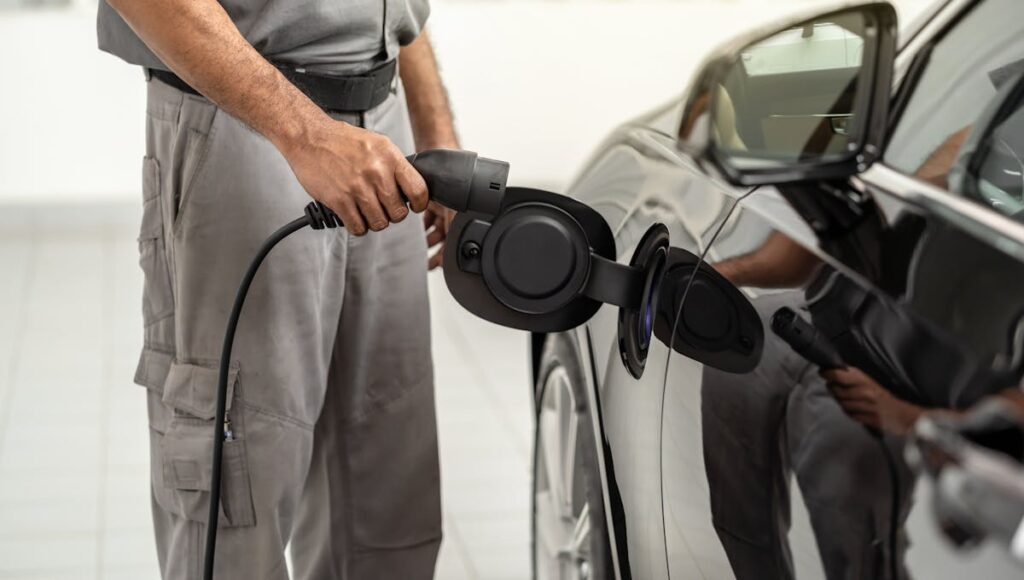Electric Car Maintenance Comparison
It Feels Like Home!

Electric Car Maintenance Comparison to Gas-Powered Vehicles.
As electric cars become increasingly popular, many drivers are curious about the maintenance requirements compared to traditional gas-powered vehicles. Here’s a electric car Maintenance comparison to help you understand the differences:
1. Simplified Maintenance: One of the main advantages of electric cars is their simplified maintenance requirements. Unlike gas-powered vehicles, electric cars have fewer moving parts in their drivetrain, which means there are fewer components that can wear out or require regular maintenance. This translates to lower maintenance costs over time.
2. No Oil Changes: Electric cars do not require oil changes, as they do not have internal combustion engines that require lubrication. This eliminates the need for regular oil changes and reduces the associated costs and environmental impact.
3. Brake System Longevity: Electric cars often utilize regenerative braking technology, which helps to extend the life of the brake system. Regenerative braking captures kinetic energy during deceleration and uses it to recharge the car’s battery. This reduces wear and tear on the brake pads and rotors, resulting in less frequent brake replacements.
4. Battery Maintenance: The most significant maintenance concern for electric cars is the battery pack. While modern lithium-ion batteries are designed to be durable and long-lasting, they will degrade over time with use. However, routine maintenance is minimal, typically limited to monitoring battery health and ensuring proper charging practices.
5. Cooling System Maintenance: Electric vehicles may have cooling systems for their battery packs and electric motors to maintain optimal operating temperatures. It’s essential to keep these systems well-maintained to prevent overheating and ensure efficient operation.
6. Tire Care: Tire maintenance remains important for both electric and gas-powered vehicles. Proper tire inflation, rotation, and alignment are necessary to ensure optimal handling, fuel efficiency, and safety.
7. Electrical System Inspections: Regular inspections of the electrical system, including wiring, connectors, and charging ports, are recommended to identify any potential issues and ensure safe and reliable operation.
8. Software Updates: Electric cars often receive software updates over-the-air (OTA) to improve performance, add new features, and address any potential issues. Staying up-to-date with these updates is essential for optimal vehicle performance and safety.
In summary, electric cars generally have simpler maintenance requirements compared to gas-powered vehicles, with fewer moving parts and no need for oil changes. While battery maintenance is a consideration, overall maintenance costs are typically lower for electric cars, making them an attractive option for environmentally conscious drivers looking to reduce their carbon footprint.
